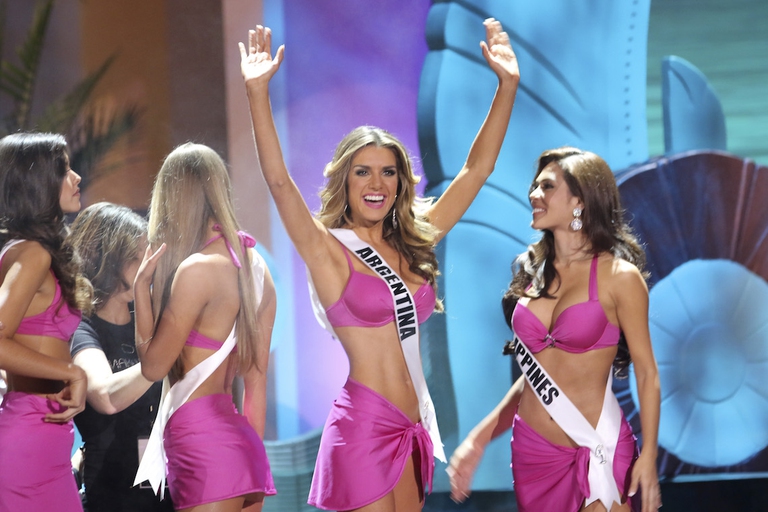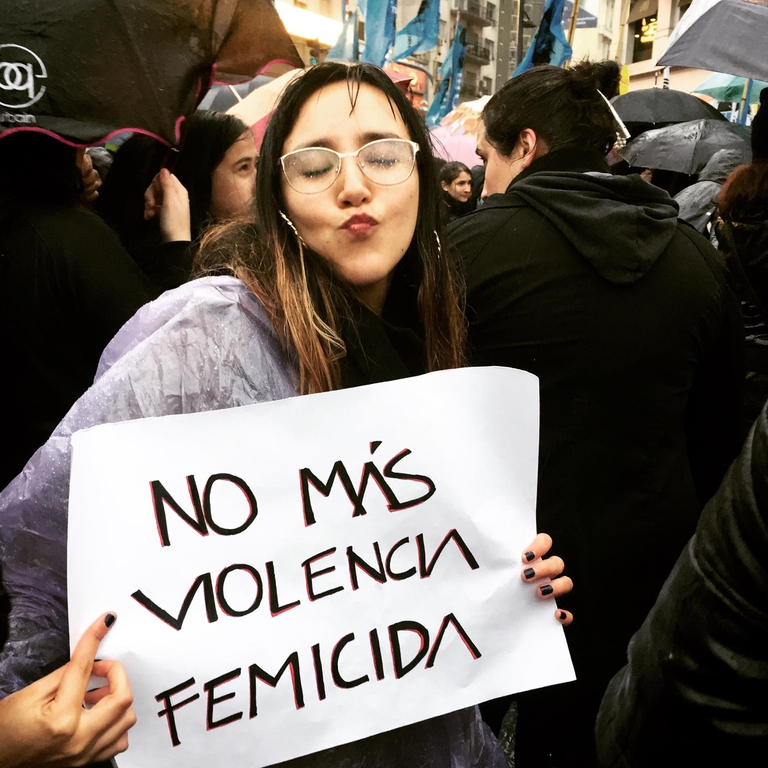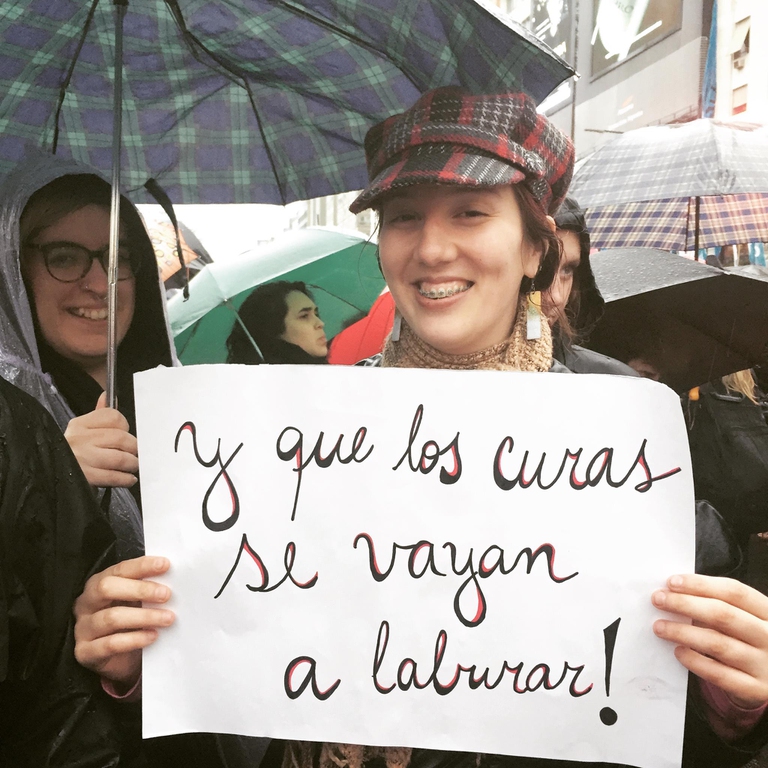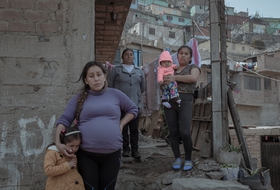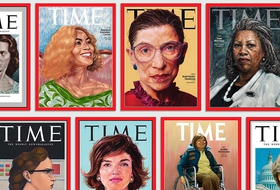
One in three women have suffered physical or sexual violence. With contributions from Europe, Africa, Asia and Latin America, we look at how this shadow pandemic affects every corner of the world.
In a response to concerns over hate crimes against women in Argentina organisers announced the suspension of the Miss Reef beauty contest for the first time in its 23-year history. The long-standing controversy surrounding the values promoted through the contest, commonly known as “the backside of the summer”, has escalated in the wake of an
In a response to concerns over hate crimes against women in Argentina organisers announced the suspension of the Miss Reef beauty contest for the first time in its 23-year history. The long-standing controversy surrounding the values promoted through the contest, commonly known as “the backside of the summer”, has escalated in the wake of an alarming number of femicides – the killing of women and girls on account of their gender – in the country.
Ahora en @Bienvenidos13 #MissReef2016 #MissReef pic.twitter.com/Ap4Ei7LnCX
— Miss Reef Chile (@MissReefChile) 21 febbraio 2016
Every summer since 1993 Mar del Plata, the biggest seaside resort in Argentina, has filled up with thousands of young people looking forward to surf shows and parties. The Miss Reef beauty pageant was one of the main events surrounding the three day surf competition hosted by sport brand Reef until the organisers suspended it “to rethink its format” due to “the sensibility of the issue in Argentina”.
Candidates for the title, usually dressed in a bikini, walk the stage one by one and then all together turn their back on the predominantly male audience and shake their bodies to the rhythm of music. “It has always seemed like a circus to me but the Snowboard Reef contest [held in Bariloche] was even worse because it was rougher”, commented Argentinian journalist Leandro Murciego. “Women were wearing bikinis in the middle of the snow”.
The decision to suspend Miss Reef, which met with the approval of women rights’ advocates, reflects a wider trend in Argentina. Prior to the announcement 20 municipalities banned organising beauty contests. “The project is against objectifying women in contests that measure and weigh candidates as if they were cows”, explained the organiser of the first initiative of the kind, Carolina Zunino from the Argentine Workers’ Central Union (CTA) in 2014.
Last year the country where a woman is murdered on average every 36 hours saw a widespread wave of protests and marches calling for the end of gender-based violence. The outrage was incited by the brutal murder of Lucía Pérez, a 16-year old schoolgirl who after being abducted in Mar del Plata was drugged, raped and tortured. The perpetrators attempted to bury the evidence of rape and torture by cleaning her body. After they brought her to a local hospital they claimed she had passed out due to an overdose. She died the same day due to internal injuries and a cardiac arrest.
The series of marches under the common banner of #NiUnaMenos (not one woman less) inspired numerous gestures of solidarity internationally. “The brutal murders have brought me to unite with #NiUnaMenos, social mobilisation born in Argentina, that in our country too expresses the frustration of our compatriots over all cases of violence against girls and women,” said Chilean president and former director of UN Women Michelle Bachelet in a video posted on Twitter.
“I believe that marches are opportunities for visibility and encounter. For one thing, the visibility of violence against women but also the visibility of rage, and also of the way we understand that violence, considering that very often the media portrays femicides as crimes of passion”, comments Romina, a graduate student at the University of Buenos Aires. “This is a movement that seeks to eradicate values of discrimination and misogyny based on a logic of subordination and violence”, adds her companion Camila who also participated in a #NiUnaMenos march in October 2016.
Banning beauty contests to combat sexist stereotypes will probably continue in the country given that the outrage over gender-driven violence in Argentina and the rest of the region won’t fade until it is absolutely resolved. And that may sadly take a while.
Siamo anche su WhatsApp. Segui il canale ufficiale LifeGate per restare aggiornata, aggiornato sulle ultime notizie e sulle nostre attività.
![]()
Quest'opera è distribuita con Licenza Creative Commons Attribuzione - Non commerciale - Non opere derivate 4.0 Internazionale.
One in three women have suffered physical or sexual violence. With contributions from Europe, Africa, Asia and Latin America, we look at how this shadow pandemic affects every corner of the world.
The Istanbul Convention against gender-based and domestic violence marks its tenth anniversary. We look at what it is, who its signatories are, and what the future might hold.
European Commission President Ursula von der Leyen reminded us of the gravity of violence against women around the world, and of the Istanbul Convention’s utmost importance.
President Erdoğan has pulled Turkey out of the Istanbul Convention, key in the fight against gender violence, claiming that it favours the LGBT community rather than family values.
Violence against women in Peru has increased as a result of Covid-19 lockdowns. 14,912 people were reported missing from January to November 2020, more than half of them minors and 64 per cent women. People have been confined to their homes for months, many forced to endure poor physical, economic and social conditions. A situation that
Joys Estefani Qqueccaño Huamani, 24, disappeared from her rural community in Peru on 9 October. Her family began looking for her independently of the authorities and despite the resistance of relatives of Joys Estefani’s ex-partner Arturo Ccana Condori, 32, charged with committing violence against her on 28 September, eleven days before Joys Estefani disappeared. Photos
Costa Rica celebrated its first same-sex marriage when two women, Alexandra Quiros and Dunia Araya, celebrated their wedding: an “extraordinary moment”.
The pandemic and its restrictions are affecting everyone, without exceptions. However factors like housing, income inequalities, gender, access to technology and working conditions are influencing how people experience the health crisis.
Time magazine’s 100 Women of the Year project sheds light on influential women’s stories, from Amelia Earhart to Greta Thunberg. A selection of some of the greats for International Women’s Day.
